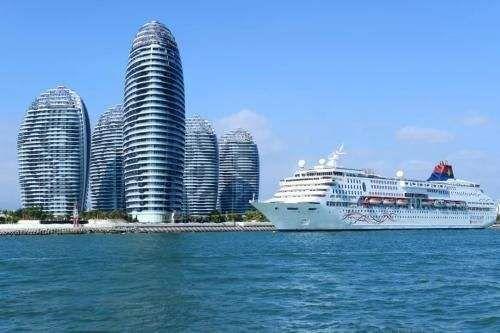BEIJING, May 14 (Xinhua) -- With "the Implementation Plan for the National Ecological Civilization Pilot Zone (Hainan)" recently unveiled by the Chinese government, the level of ecological civilization will be visibly raised in the southern island province, reinforcing its featured economy and promoting China’s green development, experts say.
According to the plan, the pilot zone aims at reaching world leading level in terms of environmental quality and resource utilization efficiency by 2035, with tasks including optimizing spatial distribution of land, coordinating development and conservation of land and sea, realizing ecological products' values, and promoting green production modes and lifestyle.
Chi Fulin, president of China Institute for Reform and Development (CIRD) based in Hainan, said in an interview with the Economic Information Daily that Hainan has unique advantages in terms of location, resources and ecological environment, thus, turning its huge resource potential into actual competitive advantages is one of the top priorities in the high-quality construction of the free trade zone.
Bai Ming, deputy director of International Market Research Department under the Ministry of Commerce, said that experiments in ecological civilization system reform consist by nature a key part in building the China (Hainan) Pilot Free Trade Zone, and will offer important support for the province's tourism, modern service and high-tech industry.
The implementation plan has also specified to establish a support mechanism for green finance during the construction of the ecological civilization pilot zone, which encourages green finance reform and innovation trials, in forms of green credit, collective forest rights mortgage, pledged financing business for environmental protection technology intellectual property, green asset securitization, and green insurance, among others.
To establish the mechanism mentioned above, it is necessary to explore the establishment of a standard certification system and a development evaluation system for green finance, increase policy support for green finance, including giving tax reduction and financial interest subsidies to environmental protection enterprises and projects, and accelerate the cultivation of regional green finance markets, said Wu Qi, senior researcher at Pangoal Institution, one of the leading public policy think tanks in China. (Edited by Li Wenxin, liwenxin@xinhua.org)




 A single purchase
A single purchase









